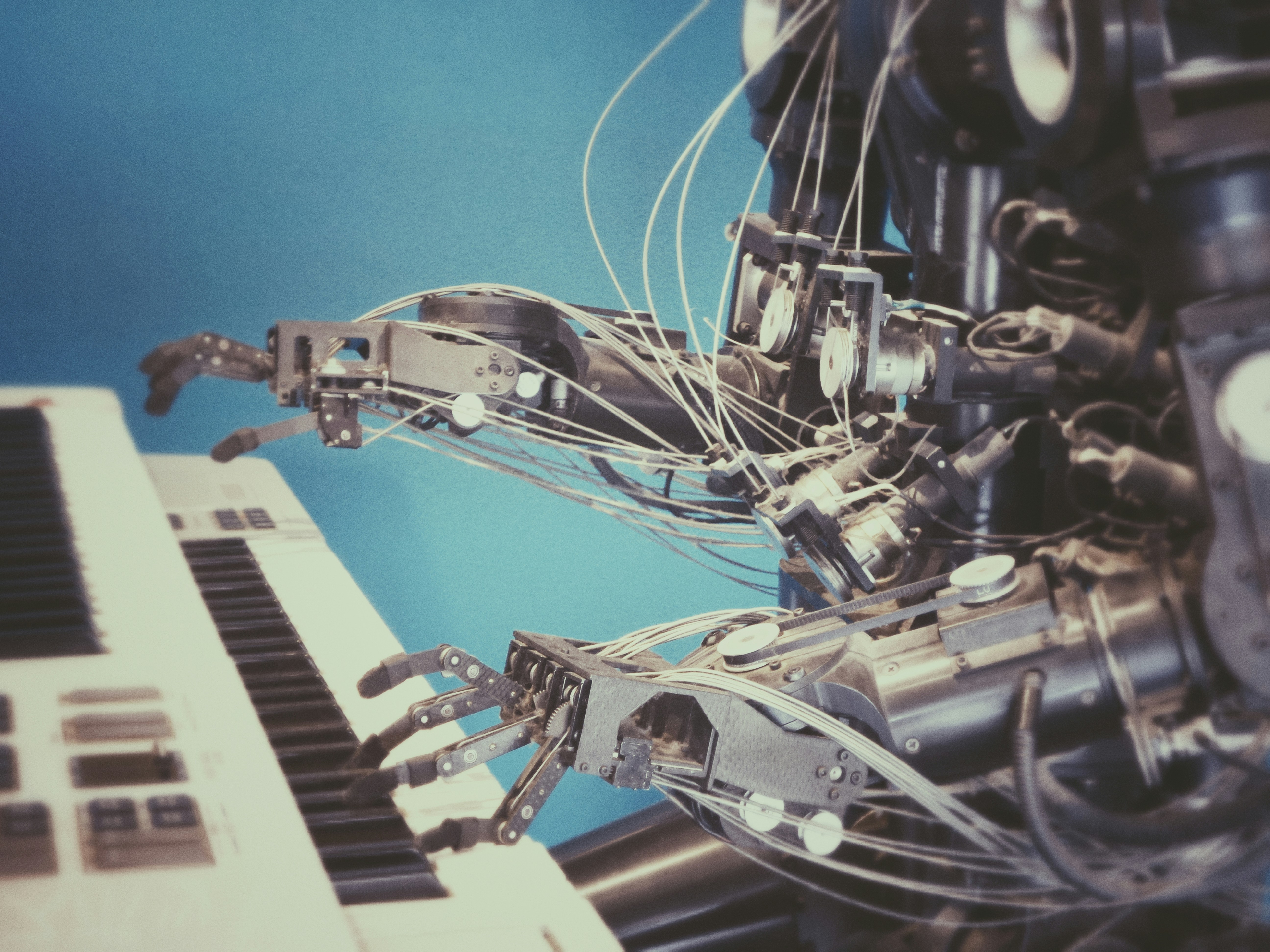Tech layoffs 2025: IBM lays off 8,000 employees as AI replaces HR departmen
May 28, 2025
The Unfolding Narrative: IBM, AI, and the Future of Work in 2025
The tech industry is no stranger to transformation, and recent developments suggest another significant shift is on the horizon. Reports are emerging about a substantial layoff planned at IBM for 2025, potentially impacting around 8,000 employees. What makes this particular development noteworthy is the indication that a significant portion of these role reductions, especially within the Human Resources department, could be directly attributed to the company's increasing adoption of Artificial Intelligence. This scenario, while specific to IBM, touches upon broader questions about the future of work, the role of AI in corporate structures, and the evolving landscape of employment in the tech sector and beyond.
The Ever-Evolving Tech Employment Landscape
The technology sector has always been characterized by rapid change. Innovation is its lifeblood, and with innovation comes restructuring, realignment, and sometimes, workforce adjustments. Historically, automation has led to shifts in job roles – from the industrial revolution to the computer age. The current wave, driven by advanced AI and machine learning, represents perhaps the most profound transformation yet. Companies across the tech spectrum are exploring ways to integrate AI not just into their products and services, but also into their internal operations. This pursuit of efficiency, cost-effectiveness, and enhanced capabilities is a driving force behind many strategic decisions.
A layoff in any industry carries significant weight, but in the tech world, it often serves as a barometer for broader trends. Companies like IBM, with their long history and global presence, make decisions that can influence industry practices. The narrative of AI replacing human jobs has moved from theoretical discussions to practical implementations, and the scale of such changes is now becoming a critical point of observation.
IBM's Strategic Pivot and the Integration of AI in HR
IBM, a company with a storied legacy of reinvention, has been vocal about its commitment to AI as a core component of its future strategy. From Watson to its current enterprise AI solutions, IBM has positioned itself as a leader in AI development and deployment. It's therefore not entirely surprising that the company would look to leverage its own AI prowess to streamline internal processes.
The reported focus on the HR department for AI-driven role replacement is particularly interesting. Human Resources has traditionally been a people-centric function, involving recruitment, employee relations, payroll, benefits administration, and talent development. However, many aspects of HR also involve data processing, repetitive tasks, and pattern recognition – areas where AI excels.
Potential HR functions that AI could increasingly manage include:
Recruitment Process Outsourcing (RPO) and Talent Acquisition: AI can sift through thousands of resumes in minutes, identify suitable candidates based on predefined criteria, and even conduct initial candidate screenings through chatbots.
Onboarding: AI-powered platforms can automate the delivery of onboarding materials, manage paperwork, and answer frequently asked questions from new hires.
Payroll and Benefits Administration: These are often rules-based processes that can be highly automated, reducing errors and freeing up human HR staff for more strategic tasks.
Employee Data Management: Maintaining and analyzing employee data for insights can be done more efficiently by AI.
Performance Management Support: AI tools can help track performance metrics and provide data for reviews, although the human element of feedback and coaching remains crucial.
Understanding the Reported IBM Layoff of 2025
According to emerging reports, the IBM layoff slated for 2025 is expected to affect approximately 8,000 positions. A key detail is the assertion that a substantial number of these roles, particularly those within administrative and operational functions of HR, are roles that IBM believes can be effectively handled by AI technologies it has developed or is implementing.
The stated reasons for such a significant layoff, intertwined with AI adoption, would likely revolve around:
Efficiency Gains: AI can perform certain tasks faster, more consistently, and around the clock, leading to increased operational efficiency.
Cost Reduction: Automating roles can lead to significant long-term savings in salaries, benefits, and other employee-related overheads. This is a major driver for any layoff.
Strategic Realignment: By automating routine HR tasks, IBM might aim to refocus its remaining human HR professionals on more strategic initiatives, such as talent development, employee engagement, organizational culture, and complex employee relations issues that require human empathy and judgment.
Showcasing AI Capabilities: As a leading AI provider, IBM using its own technology to transform its operations serves as a powerful demonstration of its products' capabilities – a "drinking our own champagne" approach.
The human impact of such a layoff cannot be understated. For the 8,000 employees potentially affected, this news would bring uncertainty and the challenge of navigating a changing job market. The support IBM offers to these employees, such as severance packages, outplacement services, and retraining opportunities, will be closely watched.
Wider Implications for the Tech Industry and the Workforce
A move of this scale by a company like IBM is bound to send ripples throughout the tech industry and potentially influence practices in other sectors.
The Human Element in an AI-Dominated Future:
This IBM layoff scenario squarely brings the debate about AI and job displacement to the forefront. While AI can create new jobs (e.g., AI ethicists, AI trainers, AI system maintenance), the immediate impact can be job losses in roles susceptible to automation. This raises ethical considerations about corporate responsibility, the social safety net, and the need for proactive measures to support workers through such transitions. The key question is how to balance technological advancement with human welfare.The Evolution of the HR Profession:
If AI takes over many transactional HR tasks, the role of the human HR professional will need to evolve. The focus will likely shift towards more strategic, analytical, and interpersonal skills – areas where human intelligence and emotional intelligence are paramount. HR professionals may become more like strategic business partners, change managers, and employee experience designers.A Potential Bellwether for Other Tech Companies?
Other tech companies, and indeed businesses in various sectors, will be observing IBM's move closely. If IBM demonstrates significant efficiency gains and cost savings through AI-driven HR automation without catastrophic disruption, it could encourage others to accelerate their own AI adoption plans, potentially leading to similar layoff events elsewhere. The pressure to remain competitive in the fast-paced tech world is immense.
Navigating the Path Forward: Adaptation and Reskilling
The narrative of the IBM layoff is a stark reminder of the transformative power of technology and the imperative for adaptation.
For Affected Employees:
Individuals impacted by such layoffs face a challenging period. Seeking outplacement services, networking, and identifying skills gaps will be crucial. Opportunities for reskilling or upskilling, perhaps in areas complementary to AI or in roles less susceptible to automation, should be actively pursued. The tech industry, despite layoffs, often has demand for new and evolving skill sets.For the Broader Tech Sector and Workforce:
This situation underscores the need for a proactive approach to workforce development. Companies have a role to play in investing in employee training and development, focusing on skills that AI cannot easily replicate, such as critical thinking, creativity, complex problem-solving, and emotional intelligence. Educational institutions also need to adapt curricula to prepare students for an AI-integrated future.The Imperative of Continuous Learning:
For individuals, the concept of lifelong learning is no longer a buzzword but a necessity. The skills required in the job market are evolving at an unprecedented pace. Staying adaptable, curious, and committed to acquiring new knowledge will be key to navigating career transitions in the age of AI. The tech landscape, exemplified by IBM's strategic decisions, demands this adaptability.
Conclusion: A Paradigm Shift in Progress
The reported 2025 IBM layoff, with its strong link to AI replacing HR functions, serves as a significant case study in the ongoing evolution of work. It highlights a paradigm shift where AI is moving beyond being a tool for product innovation to becoming an integral part of how companies operate internally. While the immediate focus is often on the job displacement aspect of a layoff, it's also a catalyst for re-evaluating roles, skills, and the very nature of work in the tech industry and beyond.
The path forward will involve a concerted effort from individuals, corporations like IBM, and policymakers to manage this transition thoughtfully. The goal should be to harness the power of AI to drive progress and efficiency while mitigating the negative social impacts and ensuring that the human workforce is equipped for the jobs of tomorrow. The story of IBM, AI, and this potential layoff is one that will undoubtedly continue to unfold, offering valuable lessons for the entire tech ecosystem.







